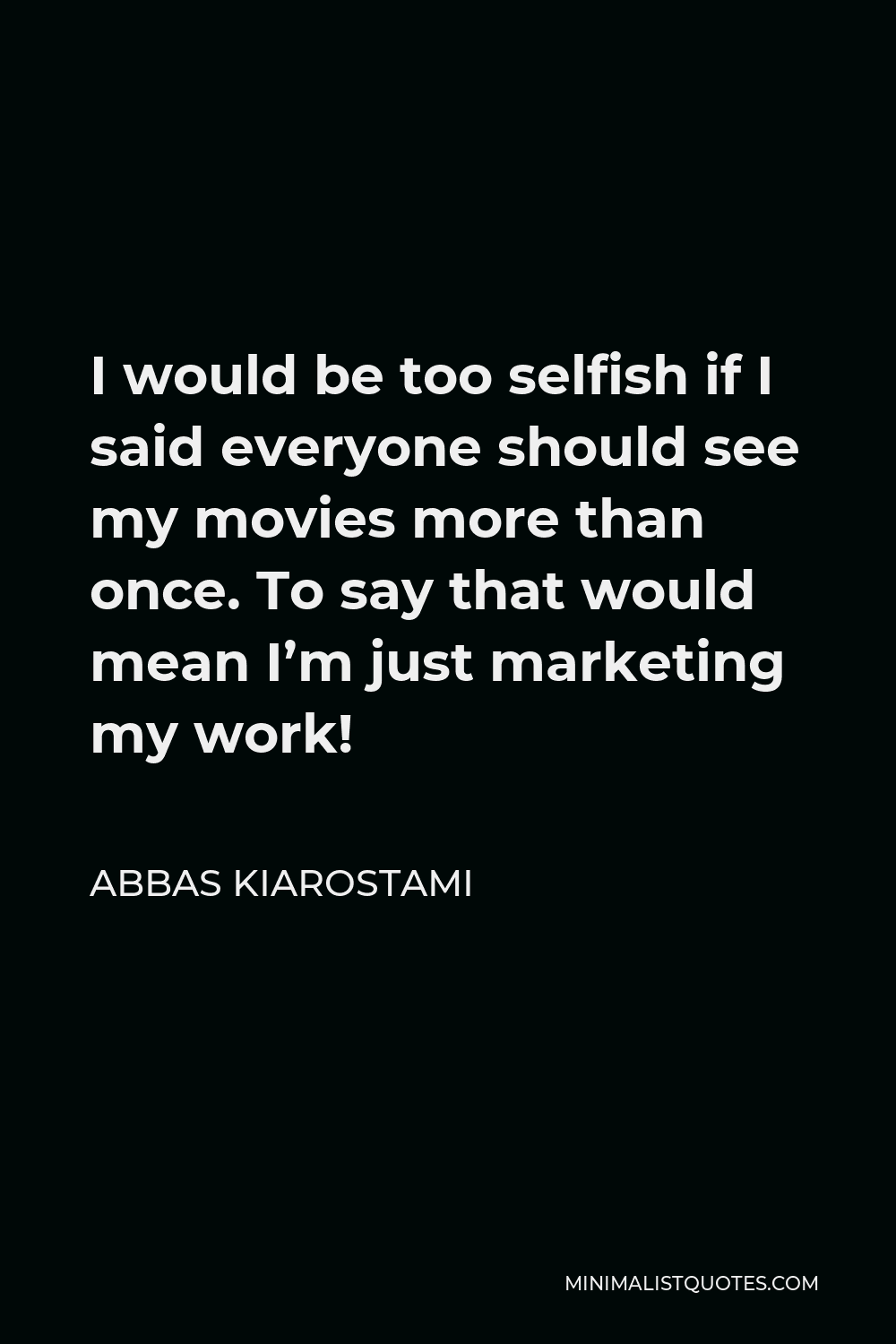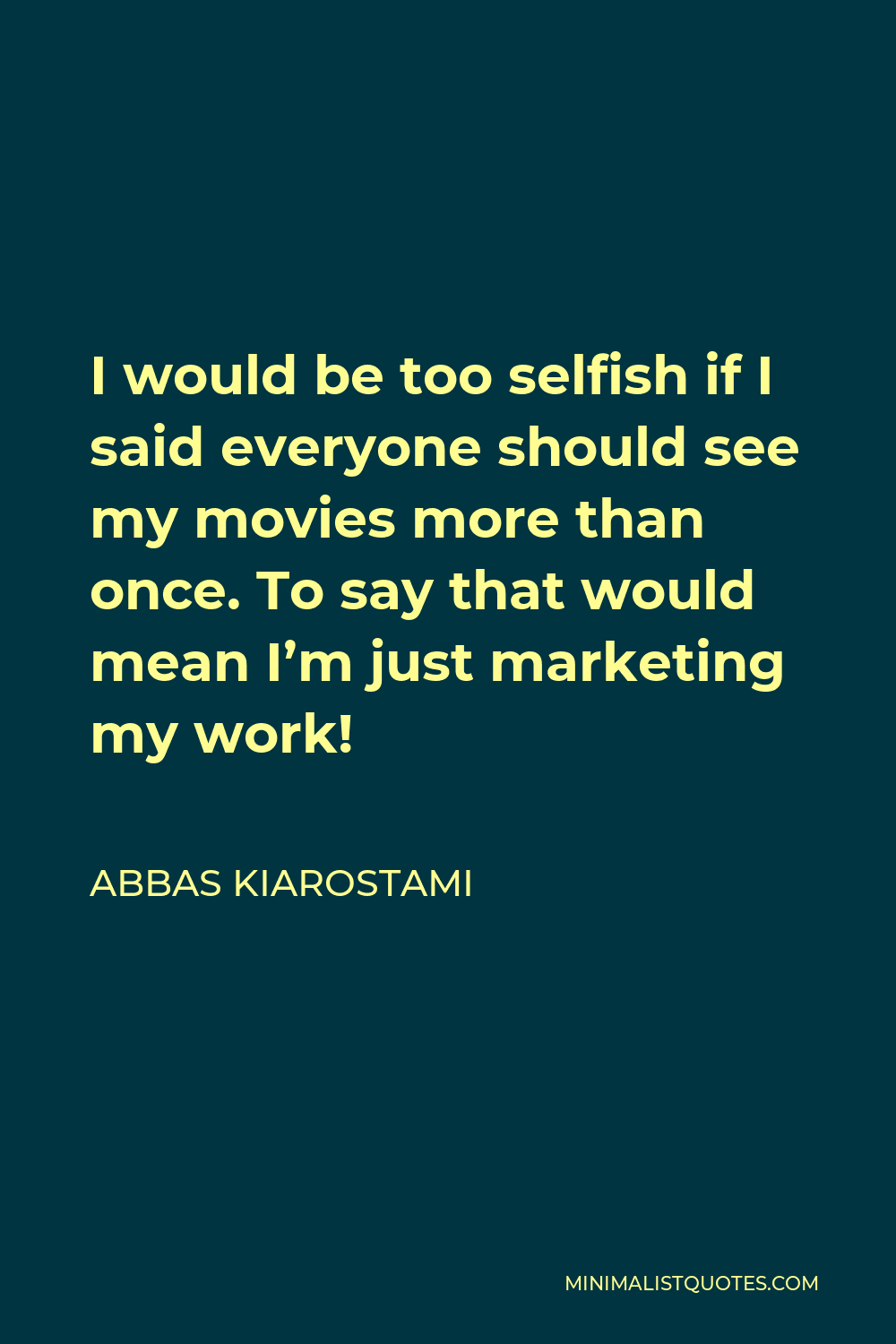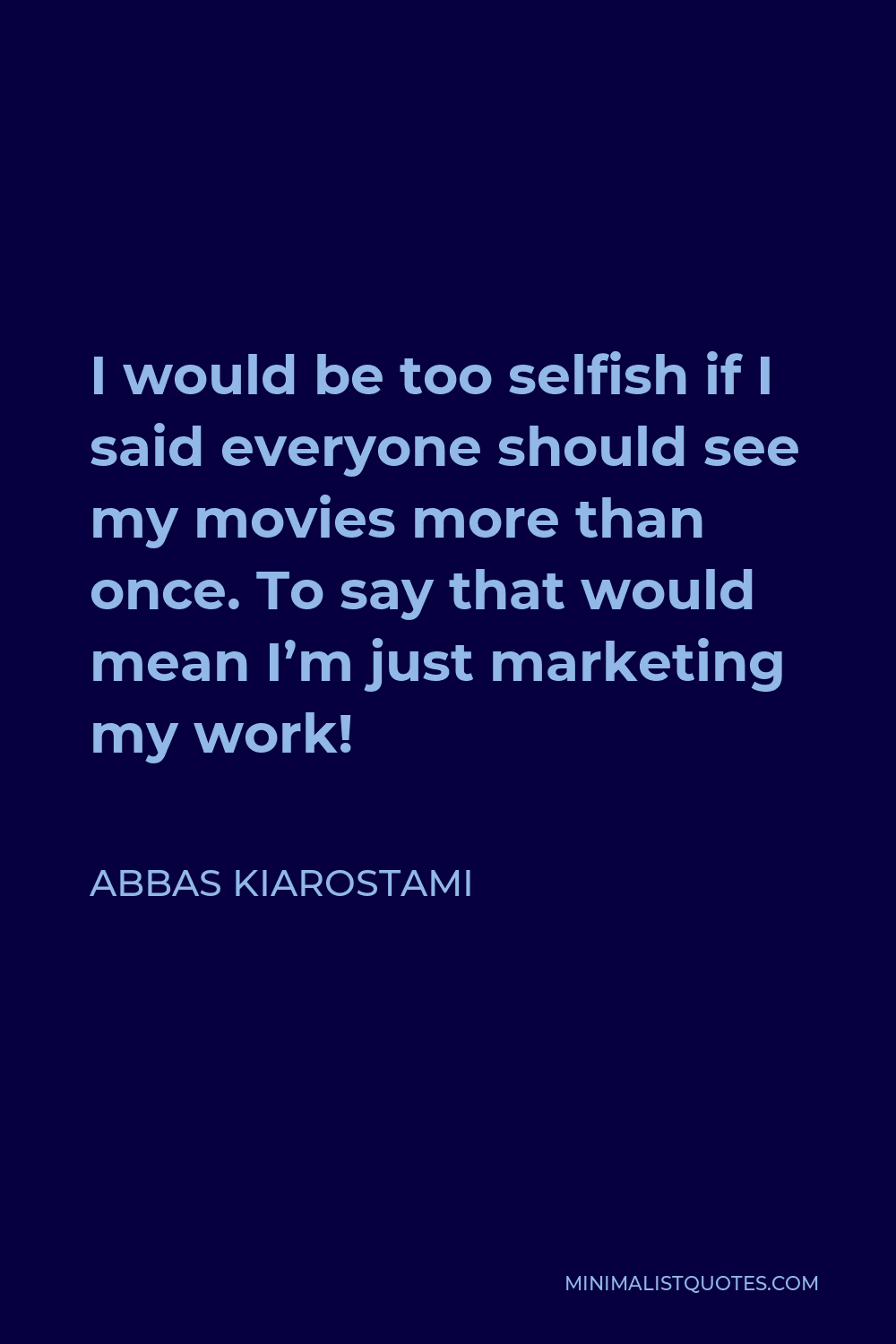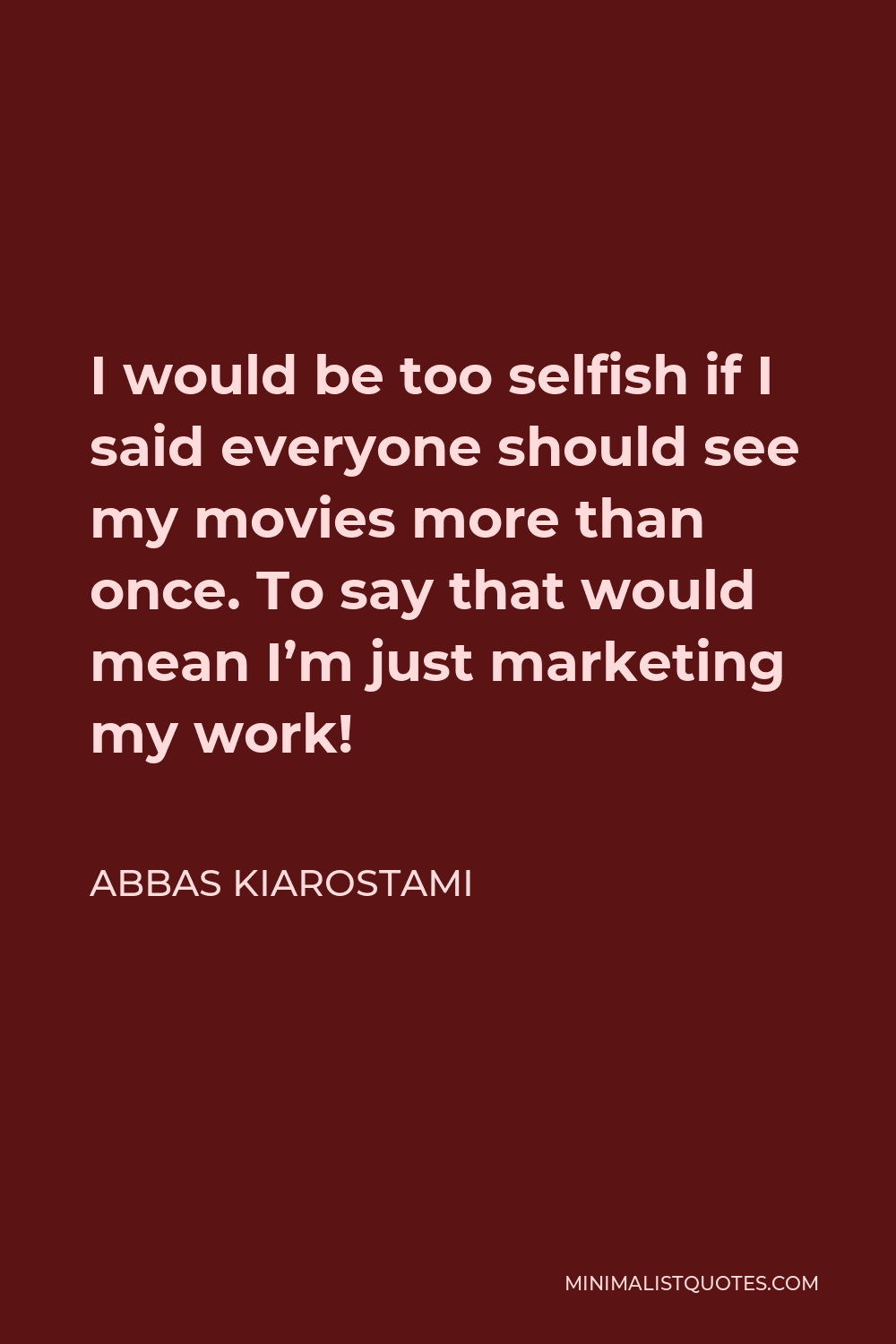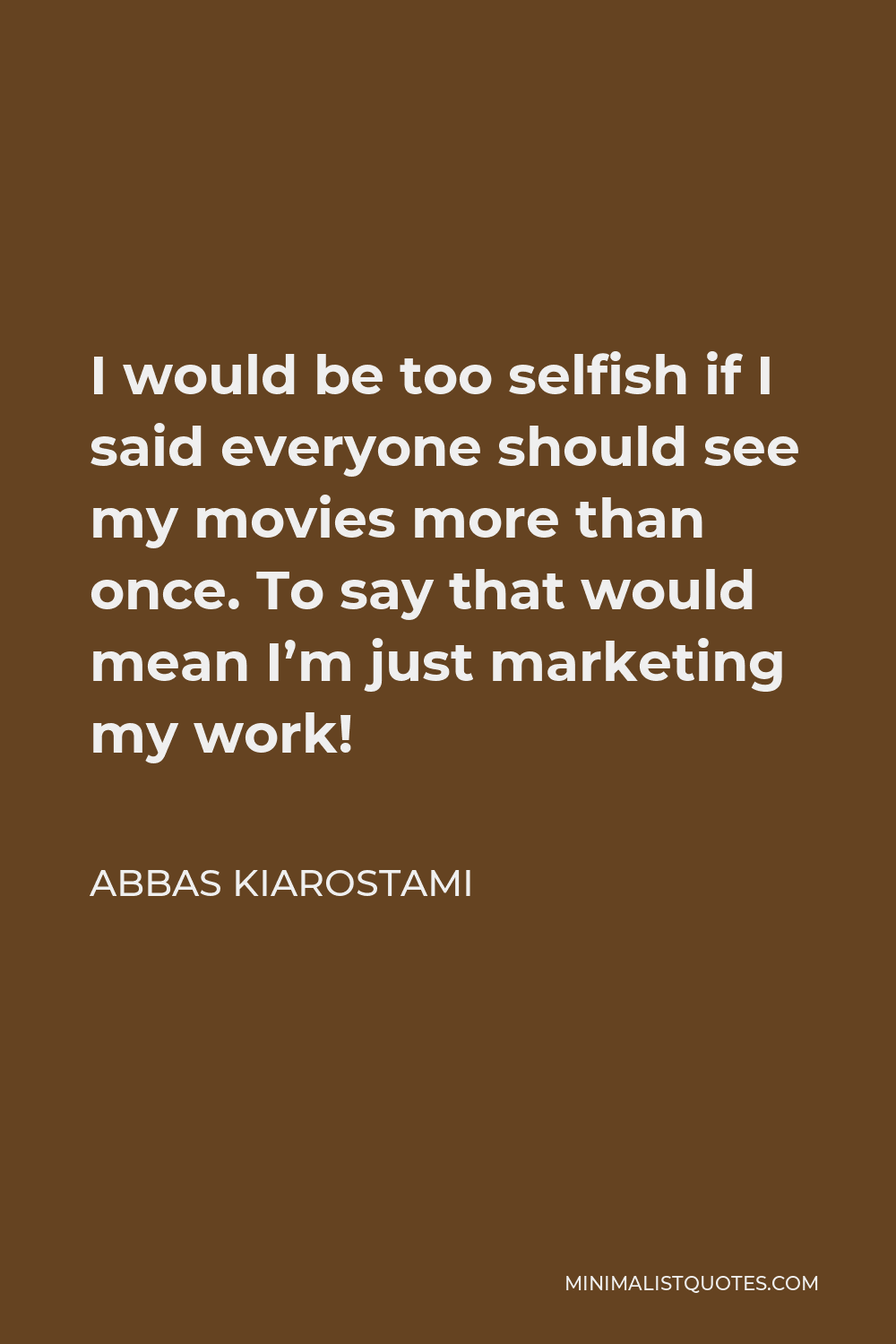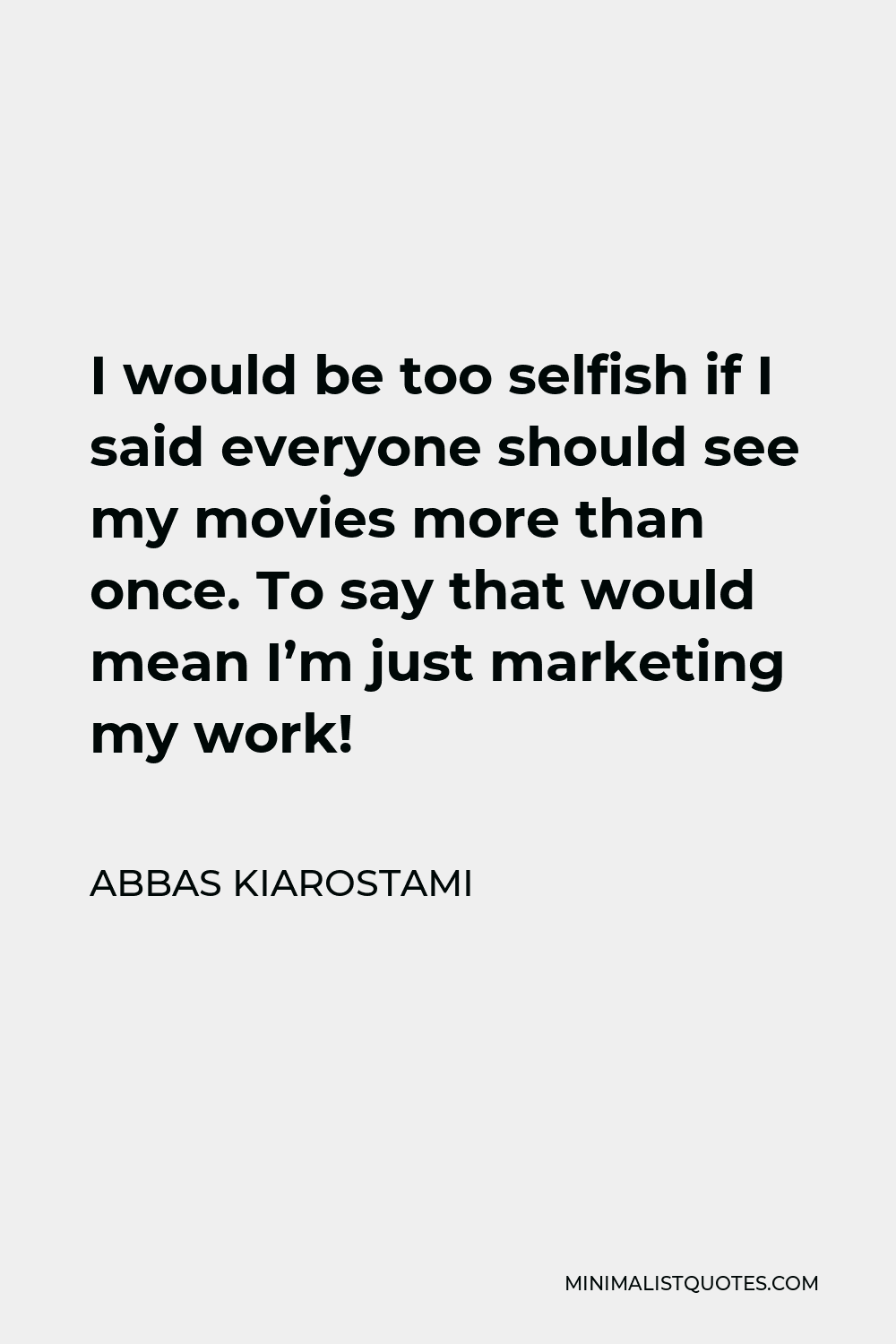If we’re not going to take full advantage of digital, then 35mm is a better medium. Especially for shooting dramas – I have no problem with 35mm.
ABBAS KIAROSTAMII would be too selfish if I said everyone should see my movies more than once. To say that would mean I’m just marketing my work!
More Abbas Kiarostami Quotes
-





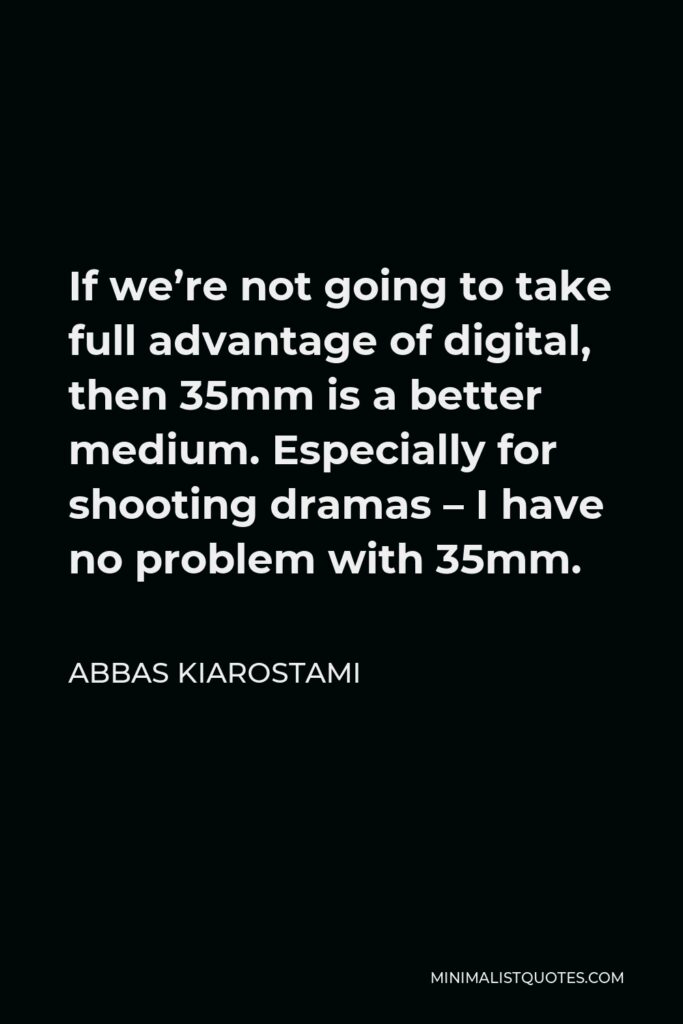

-





![Abbas Kiarostami Quote - The film [Close Up] made itself, to a large extent. The characters involved were very real, I wasn’t directing the actors so much as being directed by them. So it was a very particular film.](https://minimalistquotes.com/wp-content/uploads/2022/04/the-film-close-up-made-itself-to-a-large-extent-th-683x1024.jpg)

The film [Close Up] made itself, to a large extent. The characters involved were very real, I wasn’t directing the actors so much as being directed by them. So it was a very particular film.
ABBAS KIAROSTAMI -





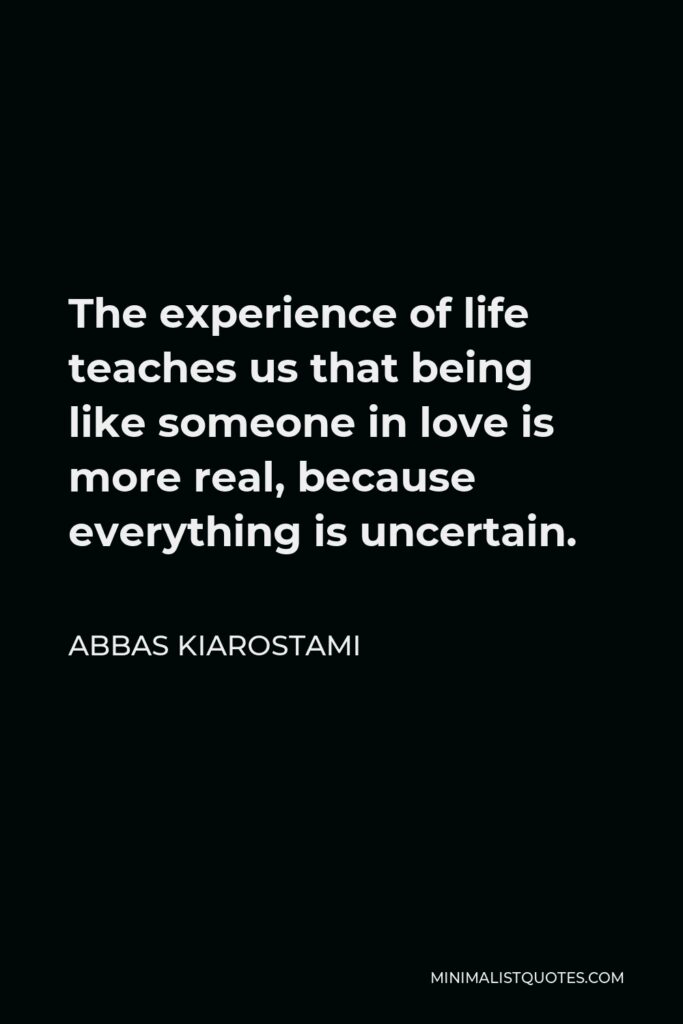

The experience of life teaches us that being like someone in love is more real, because everything is uncertain.
ABBAS KIAROSTAMI -





![Abbas Kiarostami Quote - We don’t look at each other [in the car], but instead do so only when we want to. We’re allowed to look around without appearing rude. We have a big screen in front of us and side views.](https://minimalistquotes.com/wp-content/uploads/2022/04/we-dont-look-at-each-other-in-the-car-but-instead--683x1024.jpg)

We don’t look at each other [in the car], but instead do so only when we want to. We’re allowed to look around without appearing rude. We have a big screen in front of us and side views.
ABBAS KIAROSTAMI -





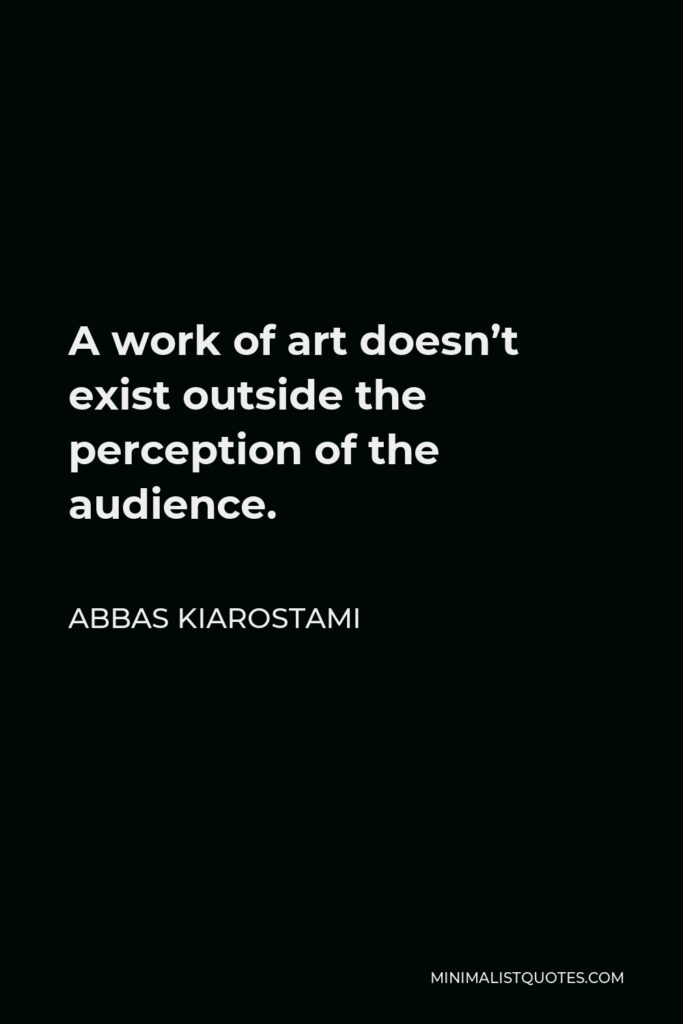

A work of art doesn’t exist outside the perception of the audience.
ABBAS KIAROSTAMI -





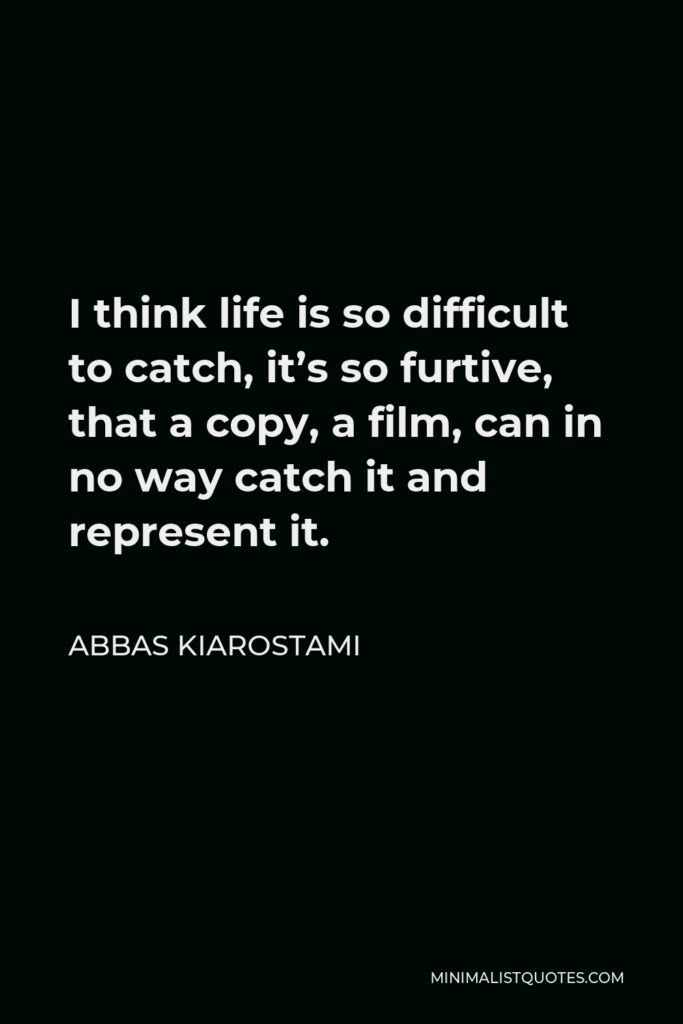

I think life is so difficult to catch, it’s so furtive, that a copy, a film, can in no way catch it and represent it.
ABBAS KIAROSTAMI -





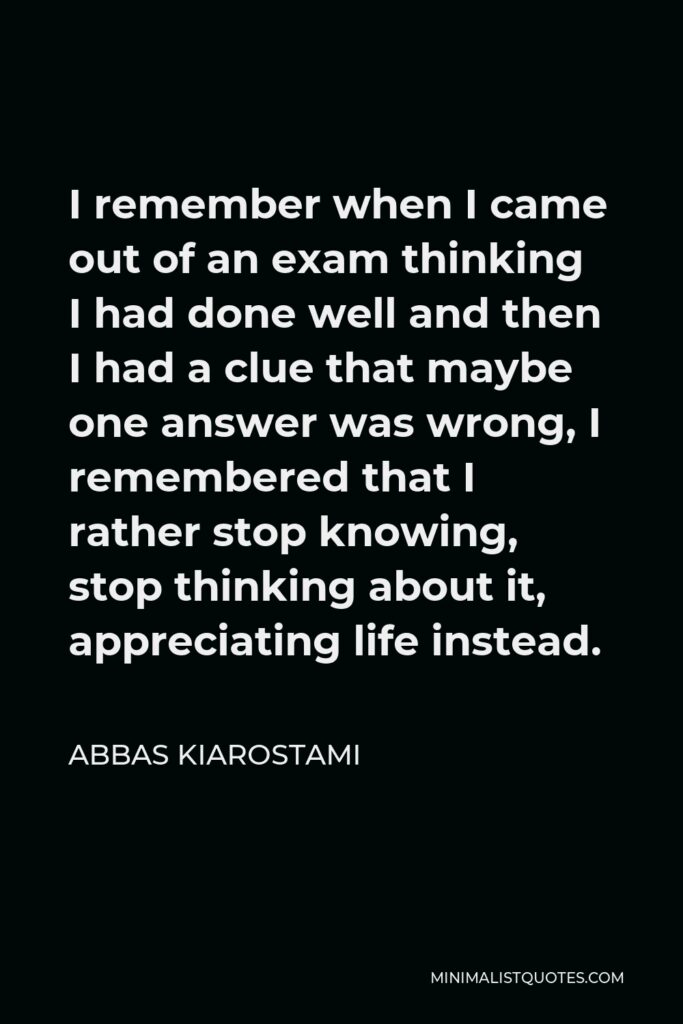

I remember when I came out of an exam thinking I had done well and then I had a clue that maybe one answer was wrong, I remembered that I rather stop knowing, stop thinking about it, appreciating life instead.
ABBAS KIAROSTAMI -





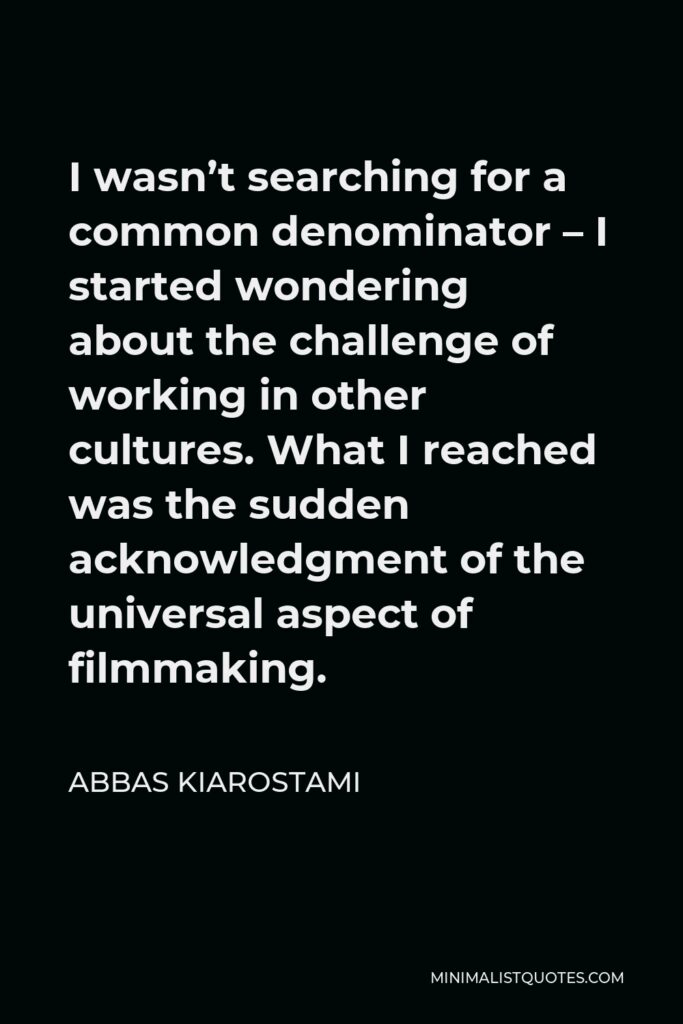

I wasn’t searching for a common denominator – I started wondering about the challenge of working in other cultures. What I reached was the sudden acknowledgment of the universal aspect of filmmaking.
ABBAS KIAROSTAMI -





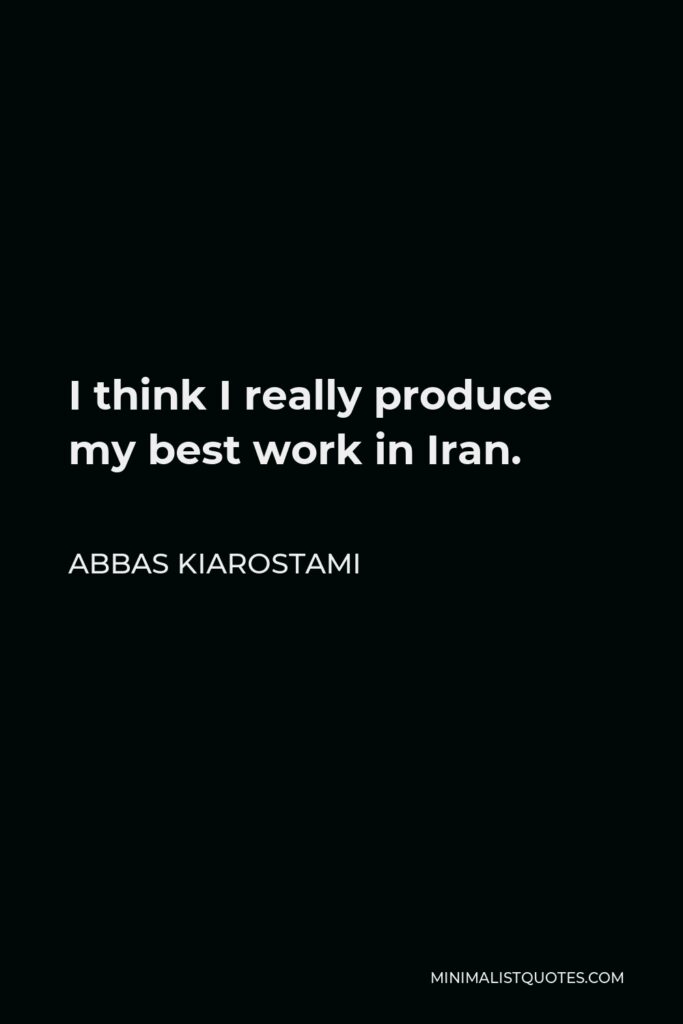

I think I really produce my best work in Iran.
ABBAS KIAROSTAMI -





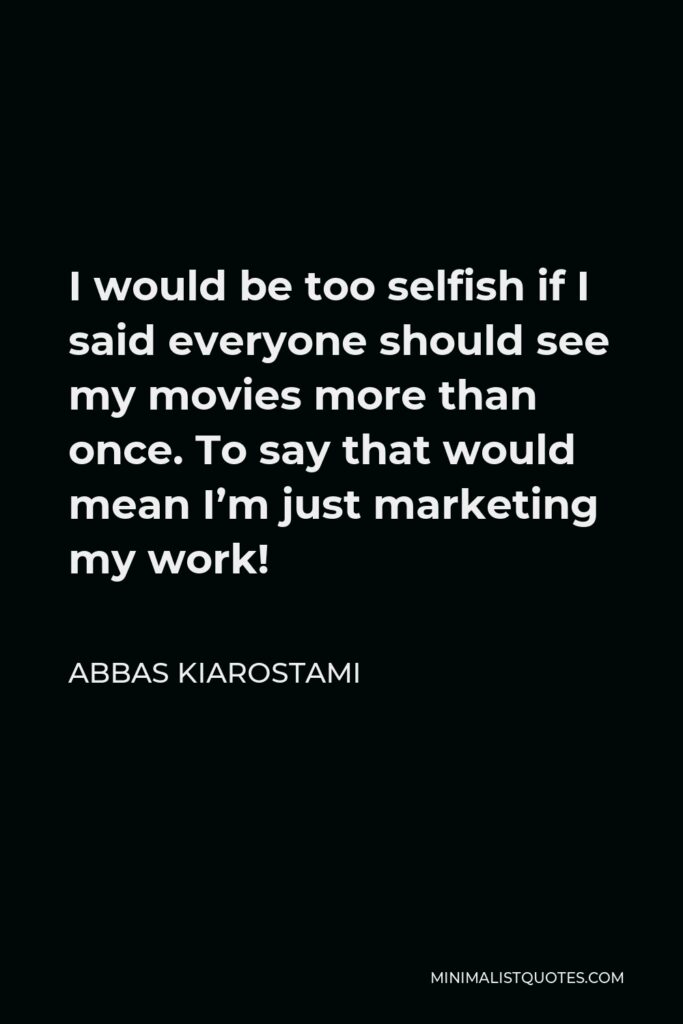

I would be too selfish if I said everyone should see my movies more than once. To say that would mean I’m just marketing my work!
ABBAS KIAROSTAMI -





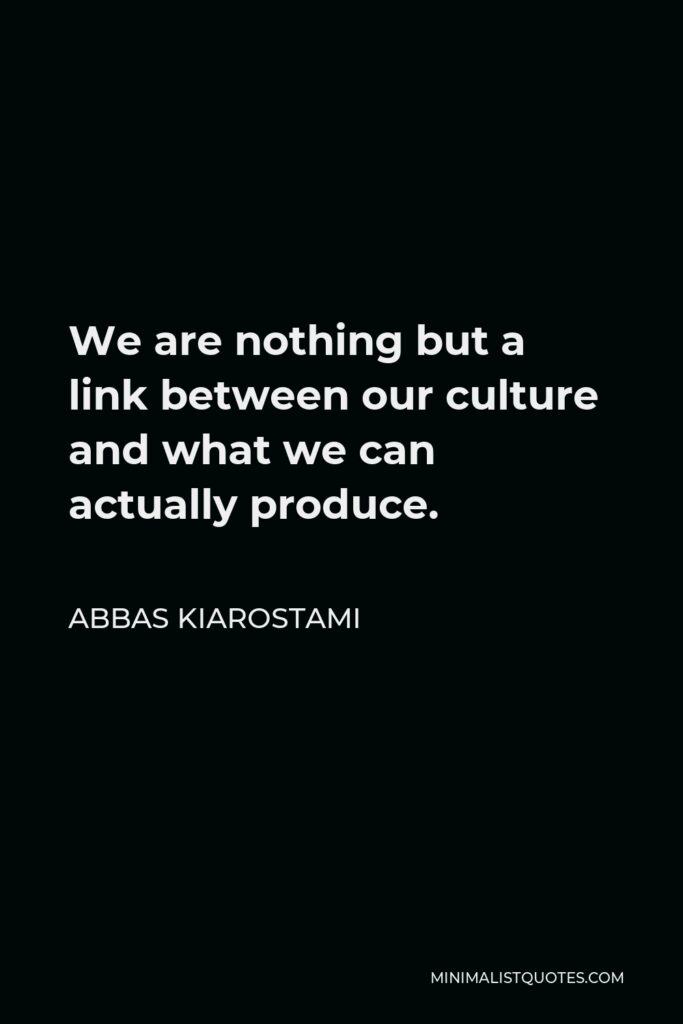

We are nothing but a link between our culture and what we can actually produce.
ABBAS KIAROSTAMI -





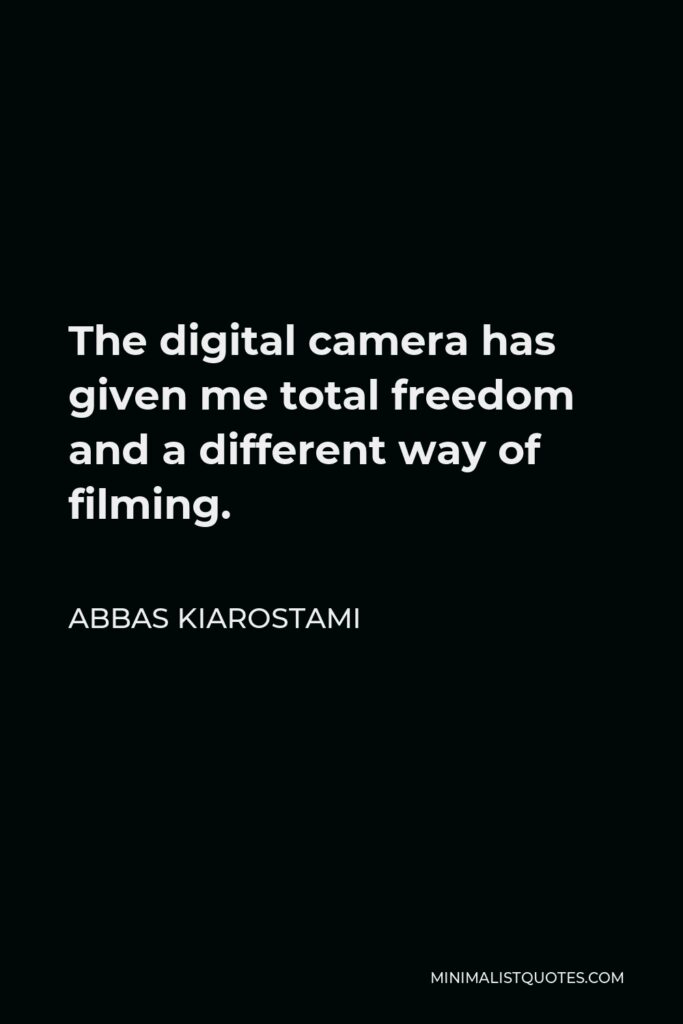

The digital camera has given me total freedom and a different way of filming.
ABBAS KIAROSTAMI -





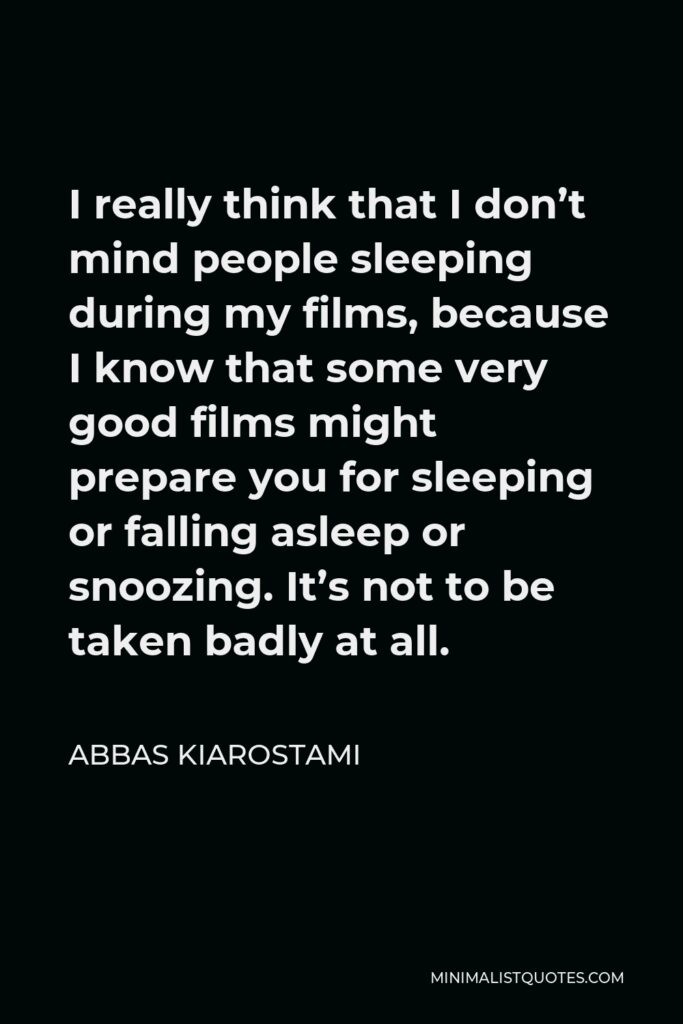

I really think that I don’t mind people sleeping during my films, because I know that some very good films might prepare you for sleeping or falling asleep or snoozing. It’s not to be taken badly at all.
ABBAS KIAROSTAMI -





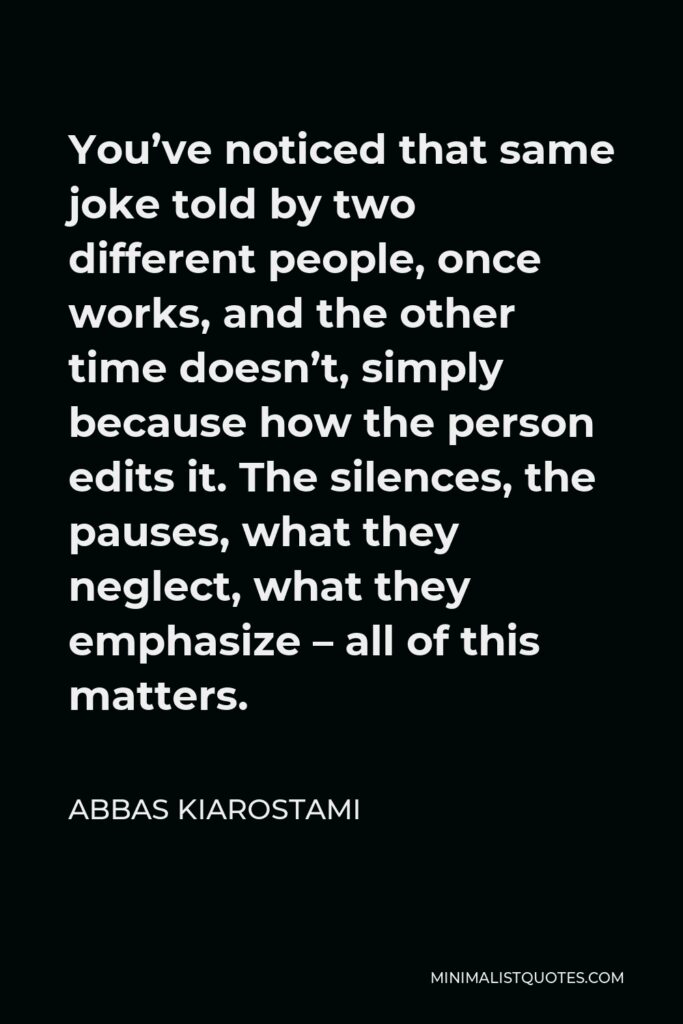

You’ve noticed that same joke told by two different people, once works, and the other time doesn’t, simply because how the person edits it. The silences, the pauses, what they neglect, what they emphasize – all of this matters.
ABBAS KIAROSTAMI -





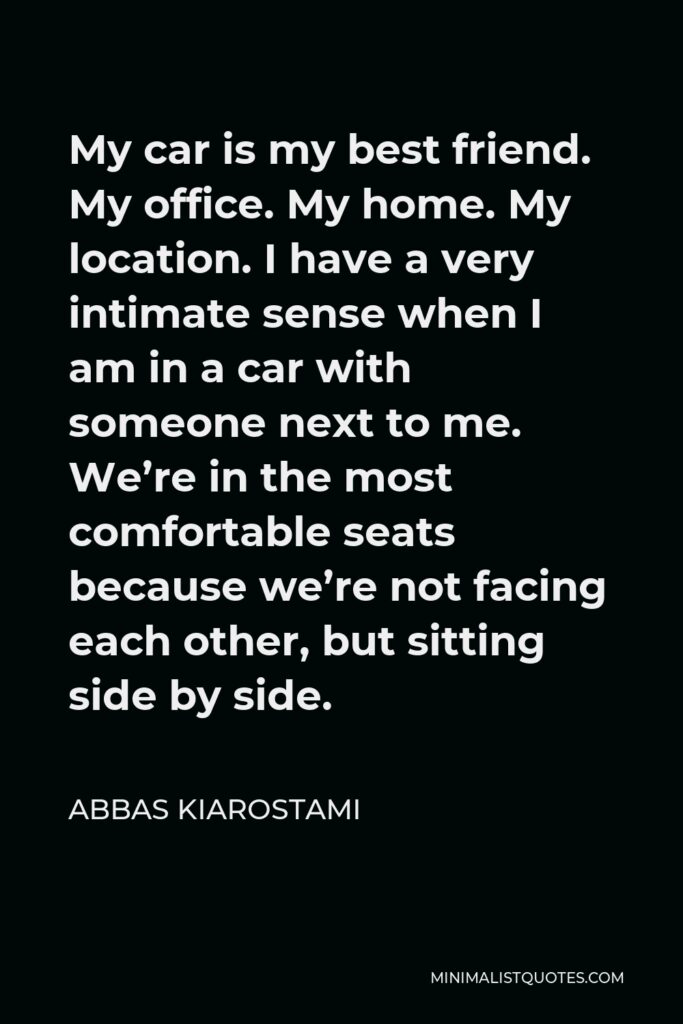

My car is my best friend. My office. My home. My location. I have a very intimate sense when I am in a car with someone next to me. We’re in the most comfortable seats because we’re not facing each other, but sitting side by side.
ABBAS KIAROSTAMI -





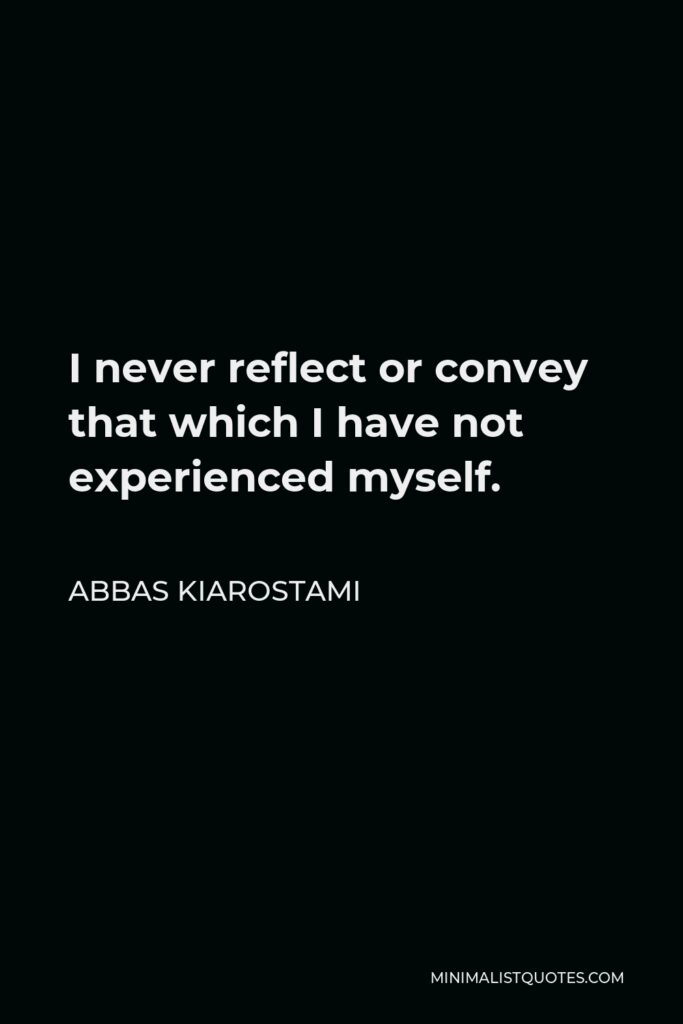

I never reflect or convey that which I have not experienced myself.
ABBAS KIAROSTAMI
